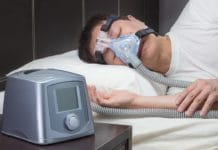Pulse quickening, vision blurring, heart racing, head pounding, labored breathing… What is happening to me, and why can’t I stop it? I’m sweating now, and it feels like the world is caving in on me. Why are my hands shaking? I can’t work like this. I want to curl up into a ball and hide in the stock room corner in the dark so no one can see me.
I must look so foolish. I need help, but I’m too embarrassed to ask. I’m not even sure what it is I need…
Have you experienced a full-blown anxiety attack brought on by unresolved workplace conflict with a dental team member? Perhaps you didn’t even realize that it was building in you, and everything was under control?
Workplace conflicts in dentistry occur more often than you think. Unresolved discord in a dental practice often leaves a harmful domino effect upon the entire team.
This article is an introduction to a series of articles revolving around workplace conflicts. We will address such topics as the impact of conflict on dental teams, and different conflict styles that we each possess, and how to complement one another with them. Also, we will map out a five-step plan for difficult conversations.
Today, let’s kick-start this series by examining a few reasons workplace conflicts arise and its impact on dental team members.
Core Values are Not Aligned
The way we interact with one another and the strategies we employ to fulfill our job duties need to be in synch in order to have a productive workflow, allowing us to feel like we are accomplishing what we set out to do every day. Core values need to be the cornerstone of how we hold ourselves accountable for our work and contribute as an important part of a whole. This is what truly sets the foundation for a meaningful and efficient workplace.
Let’s identify a few of the reasons conflict can arise in the workplace and the consequences of these conflicts.
Unstructured organization ─ Does the manager clearly identify roles? Micromanage? Does he/she sit back and allow the team members to flounder while they “find their own way,” or is there direction, openness to change, leadership that is valued, and structure that provides the bedrock that creates efficiency and trust within the dental team?
Protecting self-interests ─ Is one or more team members just out for themselves? They might want things done their own way, a certain way, or no way. This definitely can cause friction in a workplace where teamwork is paramount to success as a whole. Is this person difficult to deal with and doesn’t share their toys well? This type of attitude can really put a bad taste in the mouths of colleagues.
Lack of role clarity ─ Is there role clarity, or is everyone running around like a chicken with their head cut off because they are so unclear who should do what? Often, one person will end up picking up the slack of others and become burned out. Conversely, a team member with an unclear role may be too nervous to ask questions about what to do and what is expected and therefore go into hiding mode and hope they are not called upon in unexpected ways.
Neither of these outcomes is productive. Without individuals knowing what their actual job description is, are things getting done? If no one takes responsibility for their actions and/or passes the buck onto someone else, this creates a hostile environment for everyone.
Lack of access to information ─ Where to find the answers to things such as where the stock room is, how each dentist prefers to handle recall exams, how the new software program works, who is in charge of sterilizing, what to do in the event of a cancellation, or if there are expectations on how to address outstanding treatment with a patient. If team members do not know the answers to these and other important questions, conflict can arise.
The Lingering Effects of Conflict
Unresolved conflict can be so taxing for individuals and have a long-lasting impact that oftentimes can be very difficult to recover from and needs to be taken seriously. Below are some prime examples of possible outcomes.
Communication breakdown ─ There are those who avoid conflict and therefore refuse to discuss how they are feeling, burying their heads in the sand. This avoidance of conflict often results in a lack of communication. As a result, nothing gets done, and unresolved issues accumulate. Conversely, some colleagues have an incessant need to discuss all matters, around-the-clock, and they are relentless in their desire to “get-er-done,” even at the expense of others’ space, time, and peace.
Neither of these types of communication methods is positively impactful when overused and imbalanced. We will discuss in the next article how to handle different conflict styles to our advantage towards a cohesive workplace.
More sick leave ─ An unhealthy team member will take more time off, and this results in less productivity and more expense for the practice. Mental stress is a huge thing that isn’t going away anytime soon. Conflict at work certainly builds up over time, and the results on the psyche can be devastating, to say the least.
Inefficiencies develop ─ Is a lack of role description, inadequate number of team members to fulfill the demands of the job, or too many poorly trained team members adding to the overall demise of the office? Overworked and unappreciated team members will either quit their jobs, work too fast and create an unsafe atmosphere, or simply try so hard to please the others and the boss that they burn out altogether. This is a disaster in the making and not fair to anyone, including the practice as a whole. This type of conflict can be a slow-moving slope that needs to be addressed “yesterday.”
Workers are distracted, and morale suffers ─ I can’t stress enough how unresolved conflict eats away at individuals and, if left to stew, eventually boil over. A distraught worker is an unsafe one to him/herself and others and most definitely not good for anyone.
Worker attrition/turnover ─ If a worker feels defeated, he/she may just opt to leave the practice and start fresh somewhere else. This leaves the other teammates with a foul taste in their mouth and maybe wanting to do the same thing if it becomes a pattern of note. As for the practice? That doesn’t set a very good image or build up a lasting impression for patients who see a different hygienist or dentist on every visit, does it?
The Whole Team Feels the Pain
Finally, let’s consider how these reasons for conflict and consequences that are sure to follow can ultimately impact the team as a whole.
Encourages back-channel politics ─ Members may not speak openly, start sneaking around, and become deceptive. This all can lead to a lack of trust that undeniably fuels conflict while also allowing for personal attacks.
Unresolved controversial topics ─ Ignoring the elephant in the room and allowing one or more persons to feel silenced or afraid to voice their feelings and needs will unquestionably bring disharmony and disrespect to any workplace.
Time and energy are wasted ─ The focus starts to shift from a productive, efficient workplace to a toxic environment that is spinning in circles and not helping anyone in the long run. Patients suffer, team members suffer, and, ultimately, the practice will sink. Most hygienists want the best environment for their patients, and conflict within the team environment has a ripple effect extending to patients.
Useful Conflict
Now, let’s say that conflict can be productive. How so, you say? Good question! While we will be discussing more about this in future articles, let’s wrap this portion up by saying that there are beneficial outcomes of using conflict that can lead to things such as:
Increased effectiveness ─ Synergy within any workplace starts with all members using their own strengths to the best of their own ability. This starts with learning one another’s conflict styles. We will discuss this in the next chapter.
Important issues are raised ─ Oh, to not be afraid to voice one’s opinion and have the freedom to discuss true important issues that directly affect the practice as well as how one really feels! This is a refreshing feeling indeed and often not the case, sadly enough. However, if conversations can be had with mutual respect and openness that leads to understanding and ultimately growth and success, wouldn’t that be fantastic?
Team members can be used outside of their comfort zones ─ True growth of a team starts when all members are encouraged to grow as individuals. We all have our strengths and weaknesses, so why not discover what each of those is and encourage one another to flourish in the direction we need to?
Innovation can arise ─ If conflict can be discussed, a team is less likely to stagnate and will instead start to grow to its unlimited potential.
There you have a smack-in-the-face introduction to the impact of conflict on teams. While some of you may feel a little slighted by what you have just read, others, I hope, will feel encouraged and even captivated by the idea that you aren’t alone with your thoughts. There is extreme hope for the future of your team and the inner peace you need and deserve at your workplace.
Margaret J. Wheatley, a well-known management consultant, and writer, said, “Listening is such a simple act. It requires us to be present, and that takes practice, but we don’t have to do anything else. We don’t have to advise, or coach, or sound wise. We just have to be willing to sit there and listen.”
Before you leave, check out the Today’s RDH self-study CE courses. All courses are peer-reviewed and non-sponsored to focus solely on high-quality education. Click here now.












